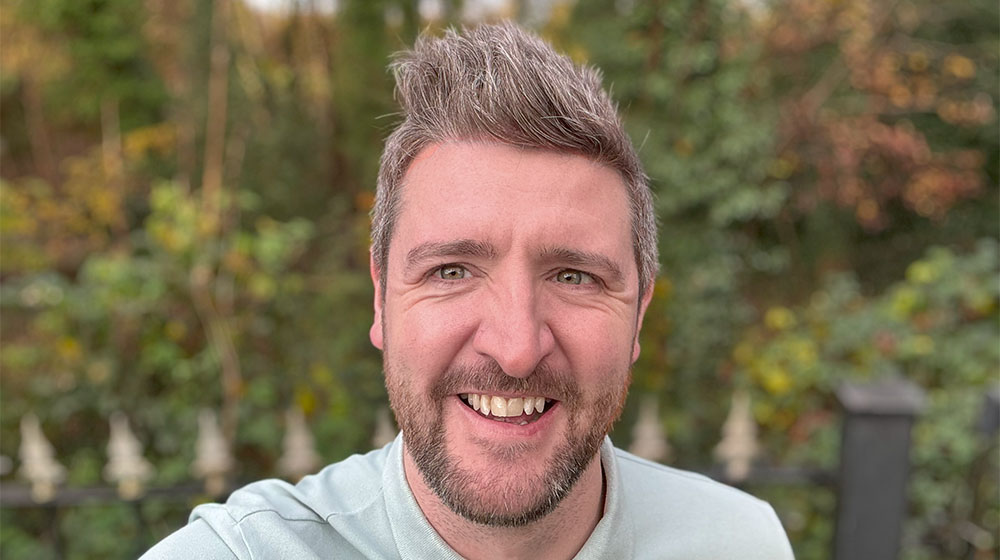AMA: Axel Thomson, founder of Ribbon App
Customer feedback on products is invaluable. It's crucial to product managers, designers and user researchers.
Manage your equity and shareholders
Share schemes & options
Equity management
Migrate to Vestd
Company valuations
Fundraising
Launch funds, evalute deals & invest
Special Purpose Vehicles (SPV)
Manage your portfolio
Model future scenarios
Powerful tools and five-star support
Employee share schemes
Predictable pricing and no hidden charges
For startups
For scaleups & SMEs
For larger companies
Ideas, insight and tools to help you grow

We sat down with Thirst founder and CEO, Fred Thompson, whose business is on a mission to help startups improve retention and engagement, to talk about startup challenges, morale and building relationships with fellow founders.
Yes, our startup, Thirst, is a learning platform that empowers learning and development teams to accelerate their education culture, with AI-driven personalisation and social learning matching learners to knowledge and closing skills gaps faster.
The inspiration behind Thirst came from the sea of stagnant platforms in the L&D sector, with difficult user interfaces and a non-existent user experience. We've transformed the industry by matching technology with an elegant and addictive learning platform experience.
You always hit roadblocks when you're a young start-up, and we've rebuilt various elements of the product that simply didn’t live up to the quality that we hoped we would deliver. We're also experimenting with innovative and groundbreaking technologies that always have early adopter challenges.
When we're structuring our teams, we aim to keep a genuine work-life balance, with things like half-day Fridays and ensuring that we don’t contact our team outside of business hours.
I think you can't create culture, you can merely encourage and foster it, and that starts from the top.
We’re also big believers in treating our team as the adults that they are and entrusting them to do their best work with us, without any micro-management. We’ve built in hack days every year too, to give our team members space from their day-to-day and the chance to think outside of the box.
Assembling the team is often one of the most difficult challenges for a startup, but over the years we've built up various partnerships with tech boot camps and created a structured recruitment process which ensures that we're the right fit for our new members.
Thirst started life as an authoring tool for instructional designers in the L&D space, but whilst the vision of the product was excellent, the complexity of the product to build and maintain ultimately led us down the path you see today. We're still firmly rooted in ensuring that organisations can upskill and retain the best talent, but the software we build to support that looks different from when we started.
I always feel that entrepreneurs are often quite lonely in their journey. I have struggled to find friends, family or colleagues who have gone through starting and executing a business who would share their thoughts.
Entrepreneurs are often quite lonely in their journey.
Nowadays I am keen to correct that, and often feed directly back to the community via channels like Founders Network (and odd-ball WhatsApp groups of like-minded individuals) and keep in touch with the leaders of my direct competition too, to complete the feedback loop.
I think the importance of networking was lost on me at the very start, but as my journey has progressed, I feel the more people in your circle you can keep close, the more people will be around to offer advice, and more things will happen in your favour.
Early-stage founders tend to be brilliant in delivering their product or service and staying laser-focused on this but can often fall when looking after the health and numbers of the business. It sounds simple but keep your costs as low as you possibly can for as long as you can. The moment you move away from this, the more expenses spiral rapidly out of control.
Keep financial bookkeeping and accountancy at the top of your list.
Track as many metrics as you can and map them against KPIs.
Finally, start to try and understand investment terminology and formulate answers to many common questions. You're going to get asked about your gross and net profit, but you're probably equally as likely to be asked about your ARR, CAC, ARPU, SAM, TAM and SOM.
If you get a handle on these early, when the time is right to take investment, you'll be in a much stronger negotiation space.
Yes, we have an Enterprise Management Incentive scheme (EMI) across the business. This scheme allows us to pay back our performing and dedicated team as the startup grows (and is ultimately sold or moves to the next phase) but also allows our business to do the best job it can to retain our key talent to enable us to grow.
We have great success with the scheme by using Vestd, which makes a complicated setup process as easy as it could be and allows our team to see the growth of their options as the company progresses.
Alongside matching sector-leading technology to surface the correct learning content for each user and delivering it within a great user experience, we offer fundamental differences to our competitors by pricing per user (instead of in tiers) and not requiring expensive long-term contract commitments.
We trust that our customers will want to stay with us as the product is continually delivering, and don't feel the need to commercially block our customers from our platform.
I am unsure if travelling back historically would provide a tremendous amount of value, as I feel business – in regard to technology, approach and strategy - changes so rapidly that what worked last decade may not today.
I have an affinity with modern leaders. The former Bumble CEO Whitney Wolfe Heard would be a great leader to have followed from her position as the founder of Bumble (the female-led dating app) and her ability to form and execute a niche in a very competitive sector.
I am a tremendous fan of Disney in general, but the transformation that Bob Iger performed on the whole organisation after replacing Michael Eisner was absolutely ridiculous! He pioneered the purchase and integration of Pixar, Lucas Film (the Star Wars franchise), Fox, and Hulu, whilst pioneering the Disney+ product and upending his own business model as he went.
In our conversation, I would simply ask him how he arrived at a position where he was confident enough to make big, bold investment bets that often flew in the face of a mature and cash-cow business, yet could see them through to level up Disney time and time again.

Customer feedback on products is invaluable. It's crucial to product managers, designers and user researchers.

Right now, there's a tech skills shortage. Not just in the UK but across the globe. So employers need all the help they can get to bring IT...

Danny Nevill is a serial entrepreneur, director, investor and fast car enthusiast, among other things. One of his enterprises is Universal Web Design...